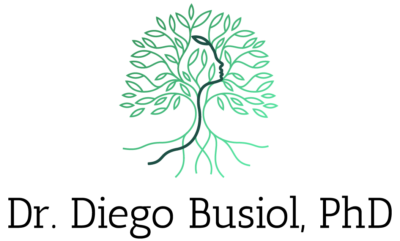Psychoanalysis is a process that seeks to uncover the unconscious dynamics influencing our actions, thoughts, and emotions. But for this journey to truly begin, something crucial needs to happen: a fundamental shift in how we approach our difficulties and ourselves.
Many people come to analysis feeling stuck, frustrated, or even overwhelmed by their circumstances. Often, the first sessions are filled with lists of grievances—things that have gone wrong, people who have disappointed them, and the injustices they have faced. These initial expressions are valid and important, but they are only the starting point. Lasting change happens when the focus shifts from blaming external circumstances to asking deeply personal questions such as:
- What do I have to do with what happens to me?
- How does this situation concern me?
- Why do I (re)act this way?
- What drives me to insist on this pattern?
When Change Begins: From Complaint to Curiosity
In my experience, some analyses struggle to gain momentum because individuals remain caught in cycles of complaint, self-pity, or anger toward the world. While these feelings are understandable, they can create a sort of impasse. Psychoanalysis only truly takes off when a person begins to turn their attention “inward”, asking themselves not only what is happening but also how they are invested in certain situations or reactions.
This shift—a moment of curiosity about oneself—is where transformation becomes possible. It’s the moment when someone moves from being a passive observer of their own life to an active participant in understanding it.
A Case Example: Breaking the Cycle of Injustice
Let me share an example. A woman came into analysis feeling deeply frustrated at work. She was talented and driven but couldn’t shake the feeling that she wasn’t being recognized for her contributions. Her thoughts were consumed by a sense of injustice, and she was fixated on getting the acknowledgment she believed she deserved.
For a long time, our sessions revolved around her frustrations. She described her colleagues, her managers, and the unfair dynamics of her workplace. While this was important to explore, it kept her focus on the external world. Then, one day, a shift occurred. She asked herself: Why do I insist so much on this recognition? Do I truly want it, or is it the feeling of injustice that drives me?
This single moment of self-reflection opened a door. Together, we started exploring her deeper patterns—memories of feeling wronged, her past struggles with fairness, her subjective understanding of justice (which she had assumed to be self-evident but was, in fact, deeply personal), and her tendency to relentlessly fight against anything that stood between her and the outcomes she had decided were the only acceptable ones. Gradually, the focus moved away from her workplace and toward her inner world: her unconscious motivations, assumptions, and fantasies.
Through this process, she began to see how her reactions were less about her current job and more about long-standing dynamics in her life. This was the turning point in her analysis. By shifting her focus inward, she was able to question her assumptions, revisit her beliefs, and rethink her behavior. And it was only at this point that real change became possible.
The Key to Change: Engaging with Your Unconscious
Psychoanalysis works not by giving advice or offering quick solutions but by helping individuals analyze their own discourse. It invites you to listen to what you say, what you don’t say, and question your beliefs, fantasies, and (unconscious) assumptions that shape your experience of the world, even without you being aware of it.
Change happens when you’re willing to question these (largely unconscious) elements. It’s not about blaming yourself for your struggles, but rather about taking responsibility for how you engage with them. This process allows you to:
- Revisit and revise long-held beliefs.
- Let go of patterns that no longer serve you.
- Discover new ways of thinking, feeling, and acting.
Why Psychoanalysis Is Different
Unlike other therapeutic approaches, psychoanalysis doesn’t aim to “fix” you or offer a predefined path to happiness. It doesn’t impose a moral framework or tell you how to live your life. Instead, it creates a space where you can explore your unique internal world and uncover your truth.
Symptoms, in psychoanalysis, are not seen as diseases to be cured but as messages to be understood. They are expressions of deeper unconscious dynamics, and by listening to them, you can begin to address the root causes of your difficulties.
Listening to the Unconscious
In psychoanalysis, the most important question is not, “What’s wrong with me?” but rather, “What part of me contributes to this situation?” This shift—from blaming others (or oneself) to deeply exploring one’s unconscious—is the key to meaningful transformation.
Through the process of listening to and analyzing your unconscious (with the guidance of a psychoanalyst), you can begin to uncover the hidden forces that shape your thoughts, behaviors, and emotions. This understanding can help you break free from repetitive patterns and open up new possibilities for living with greater freedom and intention.
If you’ve ever found yourself asking, “Why does this keep happening to me?” or “Why does life feel so unfair sometimes?” psychoanalysis offers a different question to explore: “What does this have to do with me?” In this space of curiosity and reflection, you may discover new ways to understand yourself, your relationships, and your life.
For further reflections on how change can begin in analysis, see the next article More Ways to Say It: On What Can Ignite Change in Analysis.

